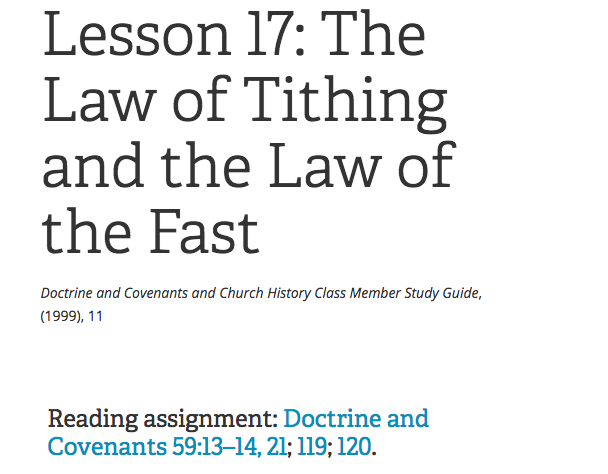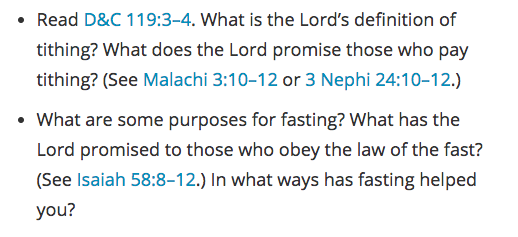
6 Steps to Enhance Your Gospel Doctrine Experience
Gospel Doctrine class may not be our only gospel study, but that doesn’t mean we shouldn’t expect to get something out of it.
If you feel like you’re stuck in a rut when it comes to Sunday School, it’s possible that some extra preparation could give your Gospel Doctrine learning the boost it needs.
Follow these 6 steps to get more out of Gospel Doctrine class every week:
1. Study the reading assignment ahead of time

I once thought those Sunday School manuals were just for the teachers.
Of course, there are definitely manuals meant specifically for the teachers. But here’s a little tip: the Gospel Library app has teacher’s manuals and class member study guides, all available to download for free on your computer or mobile device.
The reading assignment for each lesson in the class member study guide is listed right underneath the lesson number and title.
And because we work through the lessons in order, there’s no guesswork about which lesson to read.
Studying the reading assignment ahead of time ensures we’re familiar with the material we’re going to discuss in class.
2. Answer the questions in the study guide

Right after the reading assignment, each lesson lists a few questions.
Think about the questions, re-read the material if need be, and write your answers in a study journal. This helps for two reasons:
- Writing down your answers makes you commit to actually expressing them.
- Writing down your thoughts often helps you remember them better.
3. Write down your own questions

Is there anything about the material that doesn’t make sense to you? Unusual wording in the scriptures? Concepts you don’t fully understand? Write down all of those, too.
Writing down your questions ensures you won’t forget them and leave them unanswered.
Then you can take your journal with you to class and either pose your questions to the class or simply listen for answers from the discussion.
4. Don’t limit your study to the reading assignment

Don’t feel limited by the reading assignment. Instead, treat it like a starting point.
Remember those questions you wrote down? You might be able to find answers elsewhere.
For example, let’s say you’re studying the law of tithing in the Doctrine and Covenants and Church History Class Member Study Guide. In that case, you could search for General Conference talks about tithing, look up “tithing” in the Bible Dictionary, or see what the New Testament says about tithing.
5. Delve into the teacher’s manual

There’s so much material in the teacher’s manual that it’s possible the teacher won’t get to all of it.
This tip is especially relevant to this year’s study of the Doctrine and Covenants. The Doctrine and Covenants and Church History: Gospel Doctrine Teacher’s Manual online contains not only additional recommended scripture passages, but also links to articles that put the revelations in historical context.
Understanding the context of revelations in the Doctrine and Covenants can help when it comes to figuring out what those revelations really mean.
6. Share your insights in class

If you’ve been a member of the Church for more than a few years, then there’s a pretty good chance you won’t find anything you haven’t heard before in the study guides.
But there’s also a pretty good chance that the other people in your Gospel Doctrine class have a different perspective or a new idea about the material.
Sharing the things you’ve learned in your study might not only encourage others to share their thoughts, but also provide them with a new way of looking at things. Go ahead and use your ideas to inspire others, and they might share a few inspiring ideas of their own!
Bonus: Read the Doctrine and Covenants in Chronological Order

Studying the Doctrine and Covenants can be especially tricky because not all the sections are arranged in chronological order. Furthermore, the weekly Sunday School lessons are organized by topic, not date.
For a better understanding of the revelations in context, read the sections in chronological order.









